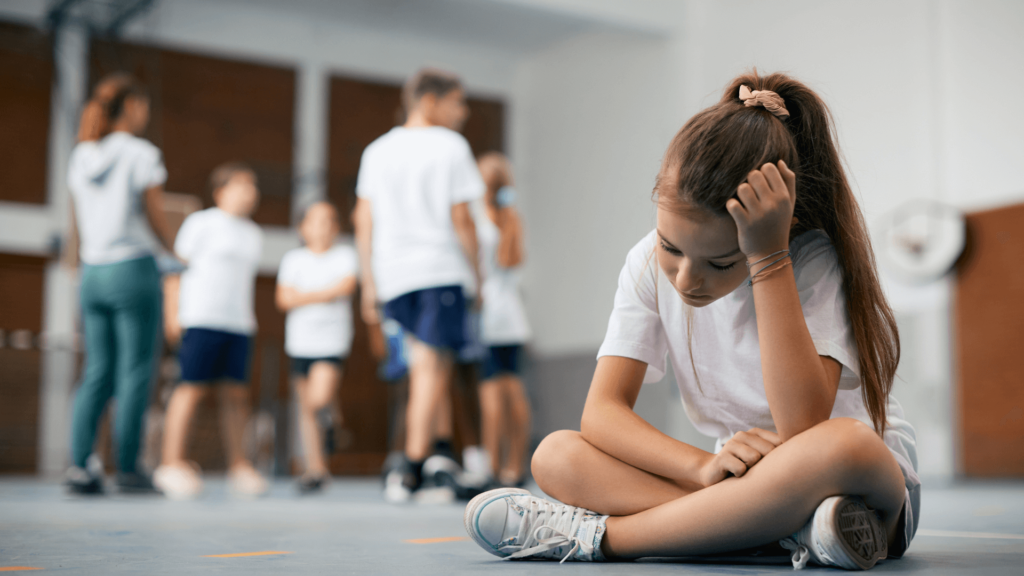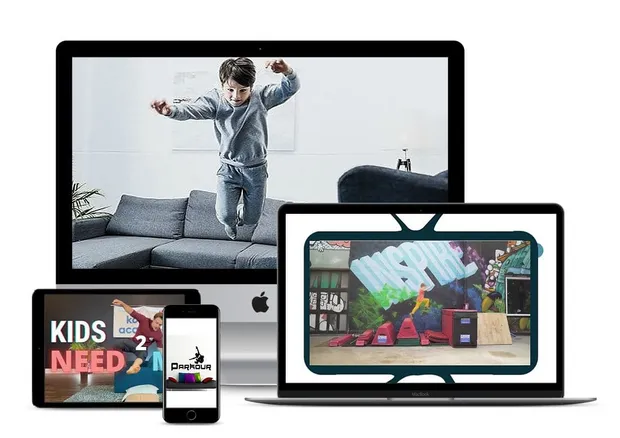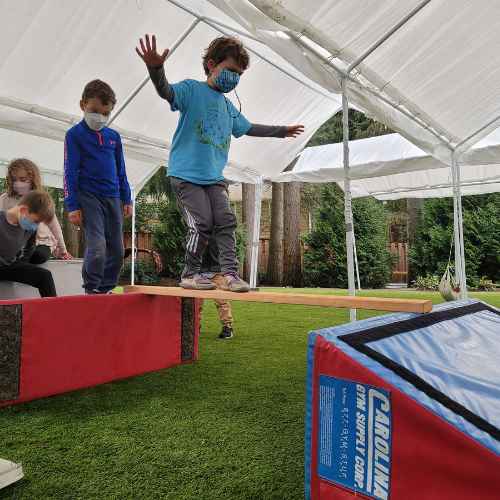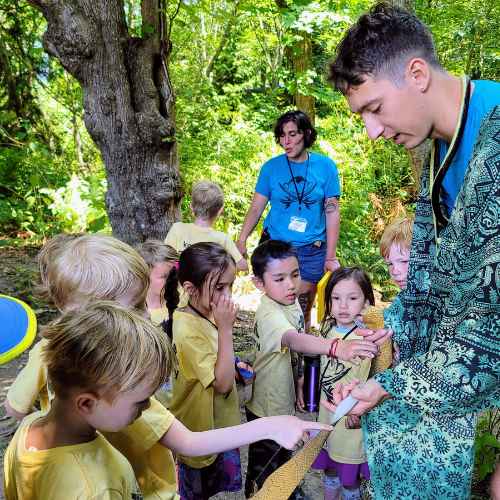
First off, let’s talk about the elephant in the room—your kid is embarrassed, and you’re not sure how to help.
If you’ve ever watched them fumble a simple game of catch, trip over their own feet, or struggle through gym class like they’re auditioning for a slapstick comedy, you might have had a moment of panic.
Is this normal? Am I a terrible parent for being worried?
Maybe they’ve come home red-faced after gym class, or refused to join a game at recess because they’re tired of being laughed at.
You are not alone, and your kid isn’t the only one who’s ever felt like they have two left feet. Maybe you remember being in their shoes—staring down a soccer ball, unsure whether to kick it or run away.
The good news? Coordination is something that can be built over time, and more importantly, confidence can grow alongside it. There’s a way forward—and it starts with making movement fun, not frustrating.
Are You Born Uncoordinated?
Some kids seem to glide through sports like they were born for it, while others trip over air and struggle to catch a ball the size of their head. It’s easy to think coordination is something you either have or don’t, but that’s not how it works.
Coordination isn’t a talent—it’s a skill. Just like reading or riding a bike, it takes practice, patience, and a whole lot of trial and error. The brain is amazingly adaptable—neuroplasticity allows kids to build new motor pathways just like they build new knowledge in school.
The best way to help them improve? Get them moving, playing, and having fun (yes, fun—not a tedious training session that makes them dread physical activity).
The Emotional Toll Of Feeling Like A Klutz
When kids struggle with coordination, the hardest part isn’t always the physical challenge—it’s the embarrassment. Nobody wants to be the last one picked for a team, the one who falls during a relay race, or the one who gets laughed at when they miss an easy shot. And if that embarrassment builds up, kids may start avoiding activities altogether. The real goal here is to give them the confidence to keep trying, not just help them move better.
What Causes Poor Coordination In Kids?
There are a few reasons a child might struggle with coordination:
- Lack of experience with movement-based play (kids who spend more time in front of screens might not have developed motor skills through play)
- Developmental Coordination Disorder (DCD), also called Dyspraxia (this is a diagnosable condition that affects motor skills, but it doesn’t mean a child can’t improve)
- Premature birth (some preterm babies may take longer to develop coordination)
- Low muscle tone or strength (which can be improved with activity!)
If your child’s struggles seem extreme or are interfering with daily activities, it might be worth checking in with a pediatrician or occupational therapist. But for most kids, regular movement, encouragement, and practice can make a huge difference.
What Can You Do?
The key is to meet your child where they are—without pressure or comparisons. Here’s how:
- Make it fun: Games, challenges, and movement-based play are key. At Kong Academy, we use games like The Floor Is Lava and obstacle courses to help kids build coordination in a way that feels like adventure, not exercise.
- Start small: If a child struggles with catching, don’t start with a baseball—start with a balloon or a scarf that moves slowly through the air, giving them time to react.
- Encourage, don’t critique: Instead of pointing out mistakes, celebrate effort. “Wow, you almost got it! Let’s try again!”
- Get creative with movement: Tug-of-war strengthens muscles, jump rope builds coordination, and climbing play structures improves spatial awareness.
- Try activities that improve coordination without pressure: Think martial arts, dance, swimming, or even parkour-based programs (like Kong!) where kids can move in ways that feel natural.
The Best Sports For Kids Who Struggle With Coordination
If your child dreads gym class but wants to be active, here are some great options:
- Martial arts (karate, taekwondo, jiu-jitsu): Builds body awareness, balance, and control
- Swimming: A low-impact way to improve coordination without worrying about tripping
- Rock climbing or indoor climbing gyms: Encourages problem-solving and full-body coordination
- Dance or gymnastics: Improves rhythm, flexibility, and strength
- Parkour (yes, really!): A fantastic way to build agility, confidence, and movement skills in a fun, low-pressure environment
Coordination Is A Skill—And Skills Can Be Learned
Your child might not wake up tomorrow suddenly moving with Olympic-level grace, but that’s okay. Every small improvement—every time they catch a ball, climb a little higher, or run without tripping—is a step forward.
And if they need an extra boost? After school programs like Kong Academy are designed to help kids build these skills through movement and play. Because at the end of the day, the goal is giving kids the confidence to keep trying, to have fun, and to know that they are capable of more than they think.
So, let’s get them moving!
GET Access to the ULTIMATE PLAY DATE PACKAGE (Value: $49) for FREE!


7-Day Crystal Shard Adventure
Unleash your child’s potential with our 7-day crystal shard movement adventure!




